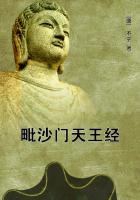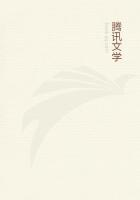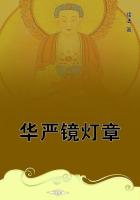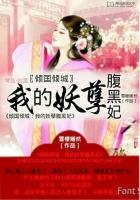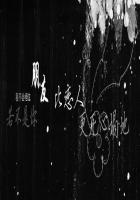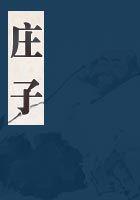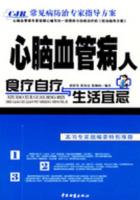I do not know how far statesmanlike views entered into the minds of the leaders of the Crusades. I believe the sentiment which animated Peter and Urban and Bernard was pure hatred of the Mohammedans (because they robbed, insulted, and oppressed the pilgrims), and not any controlling fears of their invasion of Europe. If such a fear had influenced them, they would not have permitted a mere rabble to invade Asia; there would have been a sense of danger stronger than that of hatred,--which does not seem to have existed in the self-confidence of the crusaders. They thought it an easy thing to capture Jerusalem: it was a sort of holiday march of the chivalry of Europe, under Richard and Philip Augustus. Perhaps, however, the princes of Europe were governed by political rather than religious reasons. Some few long-headed statesmen, if such there were among the best informed of bishops and abbots, may have felt the necessity of the conflict in a political sense; but I do not believe this was a general conviction. There was, doubtless, a political necessity--although men were too fanatical to see more than one side--to crush the Saracens because they were infidels, and not because they were warriors. But whether they saw it or not, or armed themselves to resist a danger as well as to exterminate heresy, the ultimate effects were all the same. The crusaders failed in their direct end. They did not recover Palestine; but they so weakened or diverted the Mohammedan armies that there was not strength enough left in them to conquer Europe, or even to invade her, until she was better prepared to resist it,--as she did at the battle of Lepanto (A. D. 1571), one of the decisive battles of the world.
I have said that the Crusades were a disastrous failure. I mean in their immediate ends, not in ultimate results. If it is probable that they arrested the conquests of the Turks in Europe, then this blind and fanatical movement effected the greatest blessing to Christendom. It almost seems that the Christians were hurled into the Crusades by an irresistible fate, to secure a great ultimate good; or, to use Christian language, were sent as blind instruments by the Almighty to avert a danger they could not see. And if this be true, the inference is logical and irresistible that God uses even the wicked passions of men to effect his purposes,--as when the envy of Haman led to the elevation of Mordecai, and to the deliverance of the Jews from one of their greatest dangers.
Another and still more noticeable result of the Crusades was the weakening of the power of those very barons who embarked in the wars. Their fanaticism recoiled upon themselves, and undermined their own system. Nothing could have happened more effectually to loosen the rigors of the feudal system. It was the baron and the knight that marched to Palestine who suffered most in the curtailment of the privileges which they had abused,--even as it was the Southern planter of Carolina who lost the most heavily in the war which he provoked to defend his slave property. In both cases the fetters of the serfs and slaves were broken by their own masters,--not intentionally, of course, but really and effectually.
How blind men are in their injustices! They are made to hang on the gallows which they have erected for others. To gratify his passion of punishing the infidels, whom he so intensely hated, the baron or prince was obliged to grant great concessions to the towns and villages which he ruled with an iron hand, in order to raise money for his equipment and his journey. He was not paid by Government as are modern soldiers and officers. He had to pay his own expenses, and they were heavier than he had expected or provided for. Sometimes he was taken captive, and had his ransom to raise,--to pay for in hard cash, and not in land: as in the case of Richard of England, when, on his return from Palestine, he was imprisoned in Austria,--and it took to ransom him, as some have estimated, one third of all the gold and silver of the realm, chiefly furnished by the clergy. But where was the imprisoned baron to get the money for his ransom? Not from the Jews, for their compound interest of fifty per cent every six months would have ruined him in less than two years. But the village guilds had money laid by. Merchants and mechanics in the towns, whom he despised, had money. Monasteries had money. He therefore gave new privileges to all; he gave charters of freedom to towns; he made concessions to the peasantry.
As the result of this, when the baron came back from the wars, he found himself much poorer than when he went away,--he found his lands encumbered, his castle dilapidated, and his cattle sold. In short, he was, as we say of a proud merchant now and then, "embarrassed in his circumstances." He was obliged to economize.
But the feudal family would not hear of retrenchment, and the baron himself had become more extravagant in his habits. As travel and commerce had increased he had new wants, which he could not gratify without parting with either lands or prerogatives. As the result of all this he became not quite so overbearing, though perhaps more sullen; for he saw men rising about him who were as rich as he,--men whom his ancestors had despised. The artisans, who belonged to the leading guilds, which had become enriched by the necessities of barons, or by that strange activity of trade and manufactures which war seems to stimulate as well as to destroy,--these rude and ignorant people were not so servile as formerly, but began to feel a sort of importance, especially in towns and cities, which multiplied wonderfully during the Crusades. In other words, they were no longer brutes, to be trodden down without murmur or resistance. They began to form what we call a "middle class."Feudalism, in its proud ages, did not recognize a middle class.
The impoverishment of nobles by the Crusades laid the foundation of this middle class, at least in large towns.


